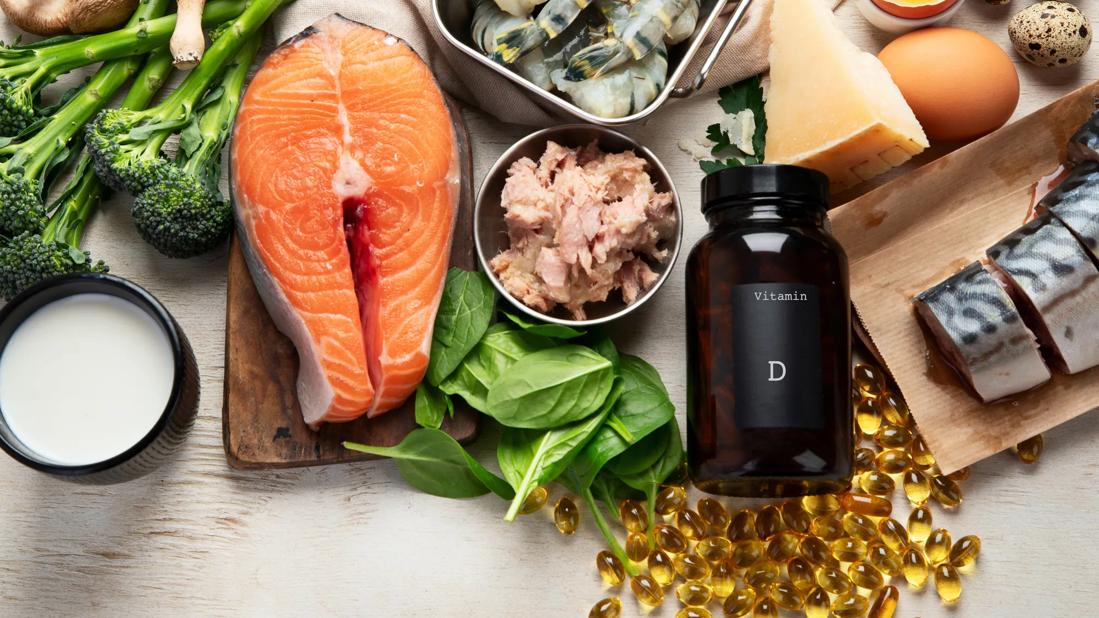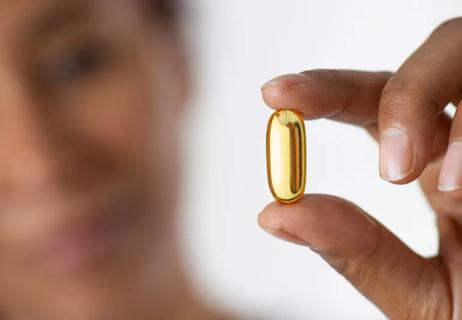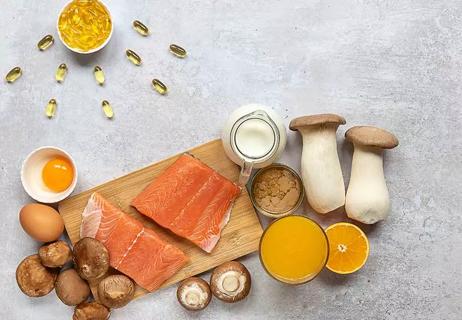The ‘sunshine vitamin’ is found naturally in some fish and is added to other foods

Vitamin D is essential to your health. But unlike a lot of other vitamins, vitamin D isn’t found naturally in many foods.
Advertisement
Cleveland Clinic is a non-profit academic medical center. Advertising on our site helps support our mission. We do not endorse non-Cleveland Clinic products or services. Policy
But there are ways to make sure you’re getting plenty of this oft-named “sunshine vitamin” in your diet by eating foods high in vitamin D — both natural and fortified.
“Most people are able to meet their daily requirement of vitamin D from sun exposure and a balanced diet that includes foods fortified with vitamin D,” says registered dietitian Anna Taylor, RD, LD.
Here are some vitamin D foods to try.
It’s recommended that people age 1 to 70 years old get 600 IUs of vitamin D per day (15 mcg). People over the age of 70 need 800 IUs (20 mcg).
These vitamin D-rich foods can help you reach that target.
What exactly is cod liver oil? It’s pretty much what it sounds like. It comes from the liver of the codfish, which is naturally high in vitamin D. Just one tablespoon of cod liver oil delivers about 227% of the recommended dietary allowance (RDA) of vitamin D for the majority of people.
You can find cod liver oil (as capsules or liquid) for sale online and at most grocery stores.
Just 3 ounces of cooked rainbow trout contains 645 IU of vitamin D, which is about 108% of the RDA for people age 70 and under.
The freshwater fish gets its high amounts of vitamin D from sunlight exposure, as well as from their diet of plankton and small fish.
Advertisement
Another reason why salmon is such a great addition to any diet? Cooked sockeye salmon — about 3 ounces — can help you get at least 95% of the RDA of vitamin D.
Fortified foods are meant to help boost vitamin and mineral intake. They’re designed to add nutrients that don’t naturally occur in the product. This could include things like iron, fiber, zinc, vitamin A and, you guessed it, vitamin D.
“Since so few foods found in nature are good sources of vitamin D, fortified foods provide most of the vitamin D found in the American diet,” Taylor says.
Common foods that may be fortified with vitamin D include:
Check the nutrition label to see whether the product was fortified with vitamin D. But take care when choosing vitamin D-fortified foods. Some may contain other compounds that make the product less healthy, like added sugar or saturated fats.
In addition to eating enough foods with vitamin D, you may want to do the following:
“Vitamin D is essential for your bone health, cell growth, immune function, glucose metabolism and so much more. But our diets aren’t naturally rich in vitamin D, and sun exposure isn’t always direct enough to help synthesize this important nutrient,” concludes Taylor. “Speak to your dietitian to ensure you’re getting the right amount to support your health.”
Advertisement
Learn more about our editorial process.
Advertisement

In general, you want to take this ‘sunshine vitamin’ with a meal or snack that contains healthy fats

Vitamin D is an umbrella term for both D2 and D3 — both help keep your bones and immune system strong

The benefits of vitamin D include stronger bones, a hardier immune system and better overall health

Research shows that high doses of vitamin D do nothing to lower your cardiovascular risk

If you’ve been diagnosed with breast cancer, having a normal range of vitamin D can help

Alternating between periods of eating and fasting may benefit your health

Research consistently shows that soy-based foods do not increase your risk of breast cancer

Health officials say that consuming unpasteurized milk increases potential exposure to harmful bacteria

Wearing a scarf, adjusting your outdoor activities and following your asthma treatment plan can help limit breathing problems

Your diet in the weeks, days and hours ahead of your race can power you to the finish line

When someone guilt trips you, they’re using emotionally manipulative behavior to try to get you to act a certain way